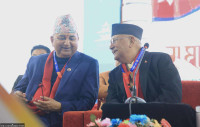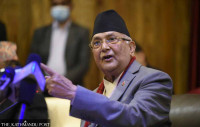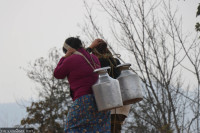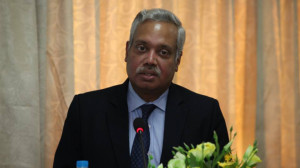National
Foreign employment
Govt should strengthen diplomatic resources and fight for fair treatment of migrant workers
Qatar, the second biggest destination after Saudi Arabia for Nepali migrant workers, formally announced last week the end of its controversial ‘kafala’ system, in which employees are beholden to the employers who sponsor their visas and need to seek their permission to change jobs or leave the country.
Qatar has faced a string of criticisms for its mistreatment of foreign workers, particularly after an expose by the Guardian in 2013 revealed the abysmal condition under which they were working building stadiums for the 2022 Fifa World Cup. The latest decision is likely an attempt to address the criticisms, although it is questionable if it goes far enough to safeguard migrant workers’ rights.
Although the Qatari Labour Minister has claimed that the old labour sponsorship system has been replaced by “a modernised, contract-based system that safeguards workers’ rights and increases job flexibility,” rights groups have remarked that the new laws do not protect workers’ rights adequately. A researcher for Human Rights Watch even described the new laws as “old wine in new bottles.” Amnesty International said that despite Qatar’s reform pledge, migrant workers are still at risk of exploitation including forced labour.
Unsurprisingly yet exasperatingly, Nepali officials are taking their sweet time to ‘study’ the new legislation and make comments. The spokesperson for the Ministry of Labour and Employment quipped that he heard through news reports that the new laws would make it easier for the workers to obtain an exit visa and apply for work elsewhere.
It cannot be denied that the opportunity Nepali workers get to work in Qatar and other countries is valuable. The slow pace of industrialisation in Nepal means that jobs are scarce here. Foreign employment has played a vital role in raising the socio-economic status of countless migrants’ families. Remittances sent by migrant workers are a mainstay of Nepal’s economy, accounting for almost a third of it. But all this has come at a fairly high cost. Thousands of Nepali workers have died while working overseas. Many more return home with traumatic experiences of abuse and exploitation.
The Nepal government deserves a significant part of the blame. It has done too little to ensure the welfare of migrant workers. For example, the Department of Foreign Employment only has about 200 people on its payroll to provide service to 2,500 workers each day. Of the 110 countries that Nepal allows its citizens to work in, only 20 have an embassy, many of which face a severe shortage of staff.
It is high time we strengthened our diplomatic resources and fight for fair treatment of our fellow citizens working on foreign soil, for they are the unsung heroes keeping our economy afloat.




 20.12°C Kathmandu
20.12°C Kathmandu














